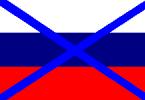The energy value of food is quantified using a unit of measurement called a calorie. It has been established that the protein and carbohydrate components of food contain 4.1 kilocalories (kcal) per gram, fat is more energy-intensive and contains 9 kilocalories per gram.
Thus, the total calorie content of the product is calculated by the formula:
Calories = 4.1 x Protein + 4.1 x Carbohydrates + 9 x Fat
Meat products
Meat products practically do not contain a carbohydrate component, they are rich in proteins and fats.
Excessive consumption of animal fat can provoke an increase in cholesterol levels and the development of atherosclerosis. However, you should not give up meat products - meat and eggs contain a full set of essential amino acids that the body requires to build muscle mass.
Choose lean meats and egg whites for a healthy diet. Calorie table of meat products:
| Meat products | ||
| Beef | 187 | Braised: 232 Fried: 384 |
| Pork | 265 | Braised: 350 Fried: 489 |
| Mutton | 294 | Braised: 268 Fried: 320 |
| Chicken breasts | 113 | Boiled: 137 Fried: 157 |
| Chicken legs | 158 | Boiled: 170 Fried: 210 |
| Duck | 308 | Baked: 336 |
| goose | 300 | Baked: 345 |
| Eggs | 155 | Fried: 241 Boiled: 160 |
| Egg white | 52 | Boiled: 17 Fried: 100 |
| Egg yolk | 322 | Boiled: 220 |
| Ham | 365 | |
| Boiled sausage | 250 | |
| Smoked sausage | 380 | |
| Sausages | 235 |
Dairy products
 Milk is a source of protein, some fat-soluble vitamins and minerals.
Milk is a source of protein, some fat-soluble vitamins and minerals.
Fermented milk products provide the body with beneficial probiotics that improve bowel function.
Curd provides the body with the slow protein casein, and cheese holds the record for calcium. Calorie content of dairy products per 100g:
Fish and seafood
 Fish is rich in proteins and fats, however, in contrast to fats from meat, fish fats are good for blood vessels and heart due to the significant content of omega-3 fatty acids.
Fish is rich in proteins and fats, however, in contrast to fats from meat, fish fats are good for blood vessels and heart due to the significant content of omega-3 fatty acids.
Seafood contains almost no fat - it is a high-quality protein product. Calorie content of fish and seafood in the table:
| Fish and seafood | Calorie content per 100 g of raw product | Calorie content per 100 g of cooked product |
| Red caviar | 250 | |
| Black caviar | 235 | |
| Shrimps | 95 | Boiled: 95 |
| Squid | 75 | Boiled: 75 |
| Crayfish | 75 | Boiled: 75 |
| Carp | 45 | Fried: 145 |
| Chum | 138 | Fried: 225 |
| Salmon | 142 | Fried: 155 Smoked: 385 |
| Bream | 48 | Boiled: 126 Dried: 221 |
| Pollock | 70 | Fried: 136 |
| Perch | 95 | Braised: 120 |
| Herring | 57 | Salty: 217 |
| Sprats | 250 |
Vegetables
 Almost all vegetables are low in calories, with the exception of starchy vegetables such as potatoes and corn.
Almost all vegetables are low in calories, with the exception of starchy vegetables such as potatoes and corn.
Vegetables contain insoluble fiber, which is not absorbed in the digestive tract, but makes it work properly. Choose fresh vegetables or process them to a minimum. Calorie content of vegetables:
| Vegetables | Calorie content per 100 g of raw product | Calorie content per 100 g of cooked product |
| Cucumbers | 15 | Salty: 11 |
| Tomatoes | 20 | Salty: 32 |
| Onion | 43 | Fried: 251 |
| Zucchini | 24 | Stews: 40 |
| Eggplant | 28 | Stews: 40 |
| Potato | 80 | Boiled: 82 Fried: 192 Baked: 90 |
| Cabbage | 23 | Braised: 47 Salty: 28 |
| Broccoli | 28 | Boiled: 28 |
| Carrot | 33 | Braised: 46 |
| Mushrooms | 25 | Fried: 165 Pickled: 24 Dried: 210 |
| Pumpkin | 20 | Baked: |
| Corn | 101 | Boiled: 123 Canned: 119 |
| Green pea | 75 | Boiled: 60 Tinned: 55 |
| Greens | 18 | |
| Beet | 40 | |
| Bell pepper | 19 | |
| Radish | 16 |
Fruits and berries
 Fresh fruits, like vegetables, are high in fiber. In addition, fruits and berries are rich in beneficial vitamins and antioxidants that support the proper functioning of all systems in the body and prevent the development of many diseases.
Fresh fruits, like vegetables, are high in fiber. In addition, fruits and berries are rich in beneficial vitamins and antioxidants that support the proper functioning of all systems in the body and prevent the development of many diseases.
| Fruits | Calorie content per 100 g of raw product | Calorie content per 100 g of cooked product |
| Apples | 45 | Jam: 265 Dried: 210 |
| Pear | 42 | Jam: 273 Dried: 249 |
| Apricots | 47 | Dried apricots: 290 |
| Bananas | 90 | Dried: 390 |
| Oranges | 45 | Candied fruits: 301 |
| Tangerines | 41 | Candied fruits: 300 |
| Lemons | 30 | Candied fruits: 300 |
| Grapefruit | 30 | Candied fruits: 300 |
| Cherry | 25 | Jam: 256 |
| Plum | 44 | Jam: 288 Dried: 290 |
| Raspberries | 45 | Jam: 273 |
| Strawberry | 38 | Jam: 285 |
| Currant | 43 | Jam: 284 |
| Gooseberry | 48 | Jam: 285 |
| Grape | 70 | Raisins: 270 |
| Kiwi | 59 | Dried: 285 |
| Mango | 67 | Dried: 314 |
| Peaches | 45 | Jam: 258 |
| Melon | 45 | Candied fruits: 319 |
| Watermelon | 40 | Candied fruits: 209 |
| A pineapple | 44 | Dried: 268 |
| Garnet | 52 | |
| Avocado | 100 |
Beverages
 Water, coffee and tea without milk and without sugar have zero calories.
Water, coffee and tea without milk and without sugar have zero calories.
All other drinks are quite energy-intensive and should be taken into account when calculating the daily calorie content. Pay attention to the calorie content of alcoholic beverages. The alcohol contained in them is estimated to have an energy content of 7 kilocalories per gram. This is less than fat, but almost double that of proteins and carbohydrates.
Nuts and seeds
 Nuts and seeds are rich in vegetable proteins, fats and fiber.
Nuts and seeds are rich in vegetable proteins, fats and fiber.
This is a very high-calorie food, but you should not completely abandon it, as nuts contain a lot of nutrients.
The seeds can be sprinkled on a salad, and a handful of nuts can be taken with you for a healthy snack. How many calories are available in nuts and seeds:
Cereals and legumes
 Cereals supply the body necessary for a balanced diet.
Cereals supply the body necessary for a balanced diet.
Consuming slow-acting carbohydrates prevents the spike in blood glucose and keeps you satiated for several hours. In addition to carbohydrates, legumes contain a large amount of vegetable protein. Calorie content of cereals and legumes per hundred grams:
Pastry and sweets
 These products have practically no nutritional value, but they are very energy intensive.
These products have practically no nutritional value, but they are very energy intensive.
When losing weight, the amount of flour products and sweets is recommended to be reduced to a minimum or completely abandoned. Such foods do not contain nutrients, have a significant glycemic index, provide the body with fast carbohydrates and "empty" calories, which are most likely to be stored as fat. Calorie content of sweets:
Sauces
 Sauces and various dressings are usually added to salads or used with meat. Since many of them are high in calories, this fact should be taken into account when calculating daily calories. Calorie table of sauces:
Sauces and various dressings are usually added to salads or used with meat. Since many of them are high in calories, this fact should be taken into account when calculating daily calories. Calorie table of sauces:
Best Slimming Products
 The main goal of losing weight is to saturate the body with nutrients without adding unnecessary calories.
The main goal of losing weight is to saturate the body with nutrients without adding unnecessary calories.
Pay attention to foods that are low in fat, the way you prepare the meal also matters. It is preferable to steam, boil or bake in the oven.
The best slimming products in the table:
| Product category | Recommendations |
| Meat products | Choose boiled chicken breasts or cook lean beef or lean pork in the oven. The egg white should be separated from the yolk to reduce the calorie content of the product. Avoid all processed meats. |
| Dairy products | Opt for low-fat milk, cottage cheese, yogurt and kefir to saturate your body with protein without additional calories. |
| Fish and seafood | Steamed or grilled fish and seafood can be added to the diet without restriction. |
| Vegetables | Cut back on potatoes and corn. Prefer using fresh vegetables for salads or steam them. |
| Fruits | Eat fresh fruit only. Fresh fruits are low in calories with the exception of avocado and banana, but high in fructose, which is a fast carbohydrate. If you want to lose weight, consider this fact. |
| Beverages | Unlimited water, coffee and tea without milk and without sugar. The rest of the drinks should be avoided during the period of weight loss. |
| Nuts and seeds | No more than 10 nuts per day, taking into account their calorie content in the daily diet. |
| Cereals and legumes | Boil porridge in water. You should not avoid complex carbohydrates when losing weight - without them, you will quickly break down and break your diet. |
| Pastry and sweets | Refuse at the time of losing weight and limit after this period. |
| Sauces | For salad dressing, it is enough to sprinkle it with vegetable oil, vinegar or lemon juice. |
The best foods for mass gain
 To build muscle mass, you should increase the daily allowance. This, however, does not mean that you need to eat all high-calorie foods in a row.
To build muscle mass, you should increase the daily allowance. This, however, does not mean that you need to eat all high-calorie foods in a row.
For a healthy diet, focus on complete proteins and complex carbohydrates.
| Product category | Recommendations |
| Meat products | Along with boiled breasts, make scrambled eggs and lean meat steaks and chops. |
| Dairy products | Any dairy product is acceptable, but it is better to focus on whey protein and cottage cheese as a source of casein. |
| Fish and seafood | Boiled, fried and steamed fish and seafood. |
| Vegetables | Limit your intake of fresh vegetables, as fiber will prevent the digestion of food eaten. |
| Fruits | Limit sugary fruits due to fast carbs, or use them after exercise. |
| Beverages | Avoid alcohol - it suppresses protein synthesis in the body and reduces the ability of muscles to recover from exercise. |
| Nuts and seeds | Limit serving size as nuts are difficult for the body to digest and, if consumed in large quantities, will cause discomfort in the digestive tract. |
| Cereals and legumes | Oatmeal, buckwheat and lentils have a moderate glycemic index and provide the body with many beneficial micronutrients. |
| Pastry and sweets | Limit these foods because of fast carbs. Can be used as a cheat meal or immediately after training. |
| Sauces | Give preference to vegetable oil - there are a lot of preservatives and salt in artificially prepared sauces. |
Kefir is considered one of the most important foods in dietetics, it promotes good digestion, improves the functioning of the stomach and intestines, and ...
Foods like butter are unfairly considered harmful and bad for the body. However, this is not entirely true - with ...
Cottage cheese is the most useful fermented milk product. It is not for nothing that it is recommended for babies from the first months of life. Thanks to the peculiarities of cooking with rennet ...
Cheese is perhaps the most popular dairy product. Among the huge assortment, everyone can find their own variety, characterized by a unique taste ...
Milk is an indispensable product in the diet of children, the elderly and sick people. It has the best effect on the body, ...
Calorie table of dairy products
The detailed table below will help you quickly calculate the energy value of a particular dish with milk or dairy products.
| Name | Caloric content, 100 g |
| Varenets with a fat content of 2.5% | 53 |
| Yogurt with a fat content of 3.2% | 68 |
| Yogurt, fat content 6.0% | 92 |
| Yogurt with a fat content of 1.5% | 52 |
| Kefir 1% fat | 40 |
| Kefir with a fat content of 2.5% | 53 |
| Kefir with a fat content of 3.2% | 59 |
| Low fat kefir | 31 |
| Koumiss | 50 |
| Cow kumis | 41 |
| Curd mass | 232,1 |
| Goat milk | 66,7 |
| Sheep milk | 109,7 |
| Pasteurized milk with a fat content of 3.2% | 60 |
| Pasteurized milk with a fat content of 3.5% | 62 |
| Non-fat pasteurized milk | 32 |
| Pasteurized milk with a fat content of 1.5% | 45 |
| Pasteurized milk with 2.5% fat content | 54 |
| Sterilized milk with a fat content of 3.2% | 60 |
| Sterilized 3.5% fat milk | 63 |
| Sterilized milk with a fat content of 1.5% | 45 |
| Sterilized milk 2.5% fat | 54 |
| Baked milk, fat content 4.0% | 67 |
| Sour milk with a fat content of 2.5% | 53 |
| Sour milk with a fat content of 3.2% | 59 |
| Sour milk with a fat content of 1% | 40 |
| Low-fat curdled milk | 30 |
| Fermented baked milk with a fat content of 2.5% | 54 |
| Fermented baked milk with fat content of 4.0% | 67 |
| Fermented baked milk with fat content of 6.0% | 85 |
| Fermented baked milk 1% fat | 40 |
| Cream 20% fat | 205 |
| Butter 82% fat | 748 |
| Cream 35% fat | 335,8 |
| Sour cream, fat content 10.0% | 119 |
| Sour cream with a fat content of 15.0% | 162 |
| Sour cream 20.0% fat | 206 |
| Sour cream with a fat content of 25.0% | 250 |
| Sour cream with a fat content of 30.0% | 293 |
| Sour cream 37% fat | 291,2 |
| Sour cream 40% fat | 291,2 |
| Serum | 18,1 |
| Cottage cheese | 155,3 |
| Cottage cheese with a fat content of 18.0% | 236 |
| Cottage cheese with a fat content of 11.0% | 178 |
| Cottage cheese with fat content of 4.0% | 136 |
| Low-fat cottage cheese | 110 |
Do not forget that overuse eating dairy products can cause disorders of calcium metabolism... In order to avoid this, create your menu in such a way that the amount of milk in it does not exceed 20%.




